Where: Aula Magna Area Bruno Pontecorvo, Edificio E, University of Pisa
When: 4th – 8th July 2022
Welcome to Pisa, home of the first edition of the “AI & Society Summer School”, organized by the Italian National PHD program in Artificial Intelligence, PhD-AI.it. The Summer School is dedicated to the PhD students of the “AI & Society” branch of PhD-AI.it, and open to PhD students of the other branches. Five thrilling days of lectures, panel, poster sessions and proactive project work, to advance the frontier of AI research together with internationally renown scientists. And plenty of social activities to mix up and build the community of next-generation AI researchers, innovators and professionals.
Partners
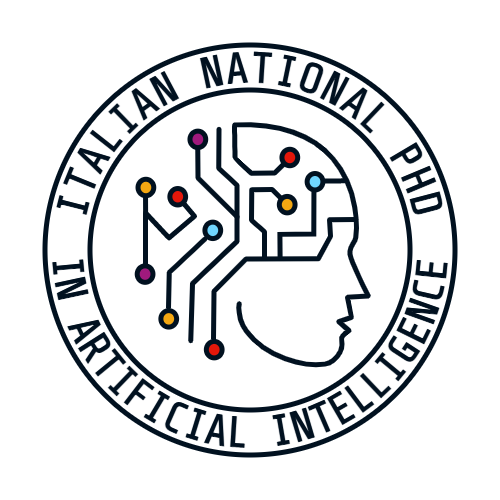 |
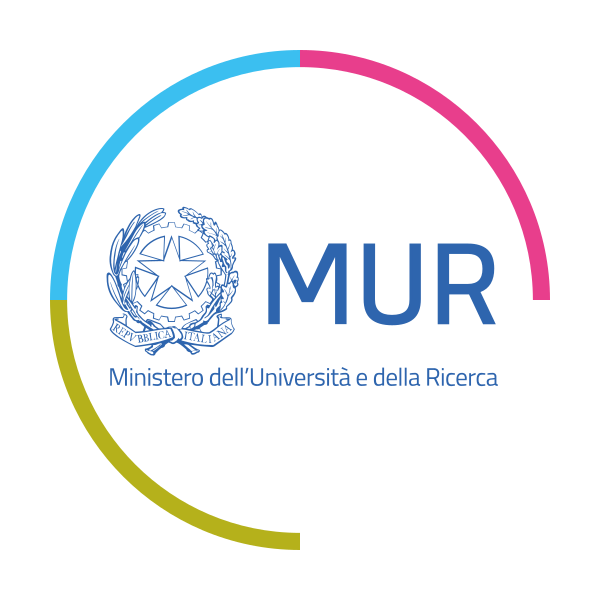 |
 |
 |
| Italian National PhD in Artificial Intelligence |
Italian Ministry of University and Research |
Consiglio Nazionale delle Ricerche | University of Pisa |
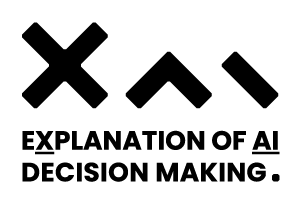 |
 |
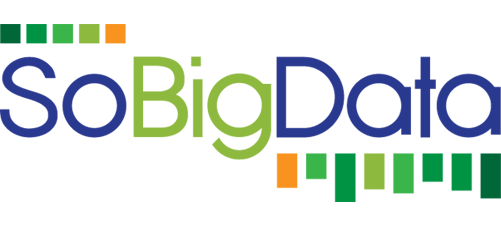 |
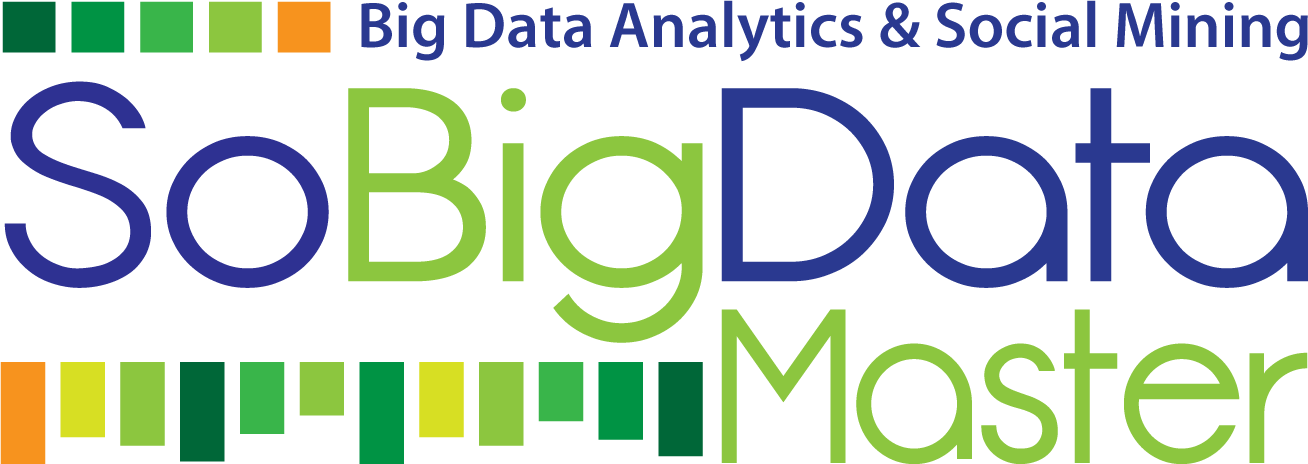 |
| Explanation of AI Decision Making ERC Advanced Grants 2018 n. 834756 |
European Network of Human-Centered Artificial Intelligence H2020-ICT-2019-3 n. 952026 |
SoBigData Research Infrastructure H2020-Excellent Science Research Infrastructures n. 871042 |
SoBigData Master in Big Data Analytics & Social Mining |
Program
| Monday 04/07 | |
|---|---|
| 08:30 – 09:00 | Registration |
| 09:00 – 09:15 | Dino Pedreschi (University of Pisa) and Marco Conti (IIT-CNR), PhD-AI.it coordinators Vincenzo Ambriola, University of Pisa, Computer Science Department Director Welcome |
| 09:15 – 10:30 | Alessio Malizia (University of Pisa) MiniCoDe – Minimise algorithmic bias in Collaborative Decision Making with Design Fiction |
| 10:30 – 11:00 | Coffee break |
| 11:00 – 12:30 | Alessio Malizia (University of Pisa) MiniCoDe – Minimise algorithmic bias in Collaborative Decision Making with Design Fiction |
| 12:30 – 14:00 | Lunch |
| 14:00 – 15:00 | Poster session |
| 15:00 – 16:30 | Panel “The future of AI research – Joint Session with workshop EmbeDS” Francesca Chiaromonte (Scuola Sant’Anna) Rita Cucchiara (University of Modena & Reggio Emilia) Fosca Giannotti (Scuola Normale Superiore) Michela Milano (University Bologna) Sara Tonelli (Fondazione Bruno Kessler) Anna Monreale (University Pisa), Moderator |
| 16:30 – 17:30 | Introduction to Project work |
| 18:30 – 20:00 | Guided Tour: Piazza dei Miracoli Meeting point: near the stairs at Museo dell’Opera del Duomo, Piazza dei Miracoli Pisa |
| 20:00 – 23:00 | Aperitivo at Grand Hotel Duomo |
| Tuesday 05/07 | |
| 09:00 – 10:30 | Emanuele Mingione (University of Bologna) Boltzmann Machines, a statistical mechanics perspective |
| 10:30 – 11:00 | Coffee break |
| 11:00 – 12:30 | Angelo Cangelosi (University of Manchester) Developmental Robotics for Language Learning, Trust and Theory of Mind |
| 12:30 – 14:00 | Lunch |
| 14:00 – 15:00 | Poster session |
| 15:00 – 18:00 | Project work |
| Wednesday 06/07 | |
| 09:00 – 10:30 | Dino Pedreschi (University of Pisa) and Luca Pappalardo (ISTI-CNR) Social Artificial Intelligence |
| 10:30 – 11:00 | Coffee break |
| 11:00 – 12:30 | Dino Pedreschi (University of Pisa) and Luca Pappalardo (ISTI-CNR) Social Artificial Intelligence |
| 12:30 – 14:00 | Lunch |
| 14:00 – 15:00 | Poster session |
| 15:00 – 18:00 | Project work |
| 20:00 – 22:00 | Social Dinner at Ristorante Bagno Italia, Marina di Pisa A bus trasfer is available. Meeting point: h. 19:15 at Park Brennero, via Paparelli Pisa |
| Thursday 07/07 | |
| 09:30 – 11:00 | Massimo Tistarelli (University of Sassari) Human Face Recognition: Designing Artificial Models from Biological Deep Networks |
| 11.00 – 11:15 | Coffee break |
| 11:15 – 12:45 | Tomaso Poggio (MIT) Considerations on the theory of Deep Learning |
| 12:45 – 14:00 | Lunch |
| 14:00 – 15:00 | Poster session |
| 15:00 – 18:00 | Project work |
| Friday 08/07 | |
| 09:00 – 10:30 | Stefano Melacci (University of Siena) Lifelong Learning from Video Streams |
| 10:30 – 11:00 | Coffee break |
| 11:00 – 11:45 | Lee Dongwon (Pennsylvania State University) Combating (Neural) False Information |
| 11:45 – 12:30 | Nitesh Chawla (University of Notre Dame) Interdisciplinarity of Data Science and AI: Driving Innovation and Advancing Societal Impact |
| 12:30 – 14:00 | Lunch |
| 14:00 – 15:00 | Poster session |
| 15:00 – 17:30 | Project work: presentations and evaluation |
| 18:00 – 18:30 | Awards Ceremony |
| 18:30 – 20:00 | Apericena |
Lectures
The lectures will take place during the morning from 09:00 to 12:30 (from Monday to Friday). They will cover 20 hours in total.
Poster Session
Each Ph.D. student will present his/her research activity/project with a poster, in prospect of the thesis proposal.
Each day (14:00 – 15:00 from Monday to Thursday) a group of about 12-13 students will present their research project (we will communicate the assigned to each day).
Project Work
From Tuesday to Thursday (15:00 – 18:00) each group will work to elaborate a research project proposal on a specific topic regarding Artificial Intelligence, broadly related to the AI&Society area.
Each proposal should be prepared by taking into consideration the following guidelines:
- Objectives and State-of-the-art: Specify the proposal objectives in the context of the state of the art in the research field. It should be clear how and why the proposed work is important for the field.
- Ambition and research challenge: Specify any particularly challenging or unconventional aspects of the proposal, including multidisciplinary aspects and the possible ambitions of the proposed work that will advance the state of the art.
- Proposed methodology: Describe the proposed methodology including any intermediate goals. Explain and justify the methodology in relation to the state of the art, and particularly novel or unconventional aspects addressing the ‘high-risk/high-gain’ balance. Highlight methods and data will be used in order to reach the proposed objectives.
- Case studies: Describe and discuss possible case studies and application scenarios that could be useful for demonstrating the potential of the proposed project.
- Impact on science, technology and society: Discuss what impact proposed work will have if successful, such as how it may open up new horizons or opportunities for science, technology, economy, social life, and industry.
The topic could be chosen by each group among the ones suggested by the Organization Committee (see next section), or proposed directly by the group.
AI & Society topics
- Social AI for smart-cities
- AI Challenges in the Social Media World
- AI impact on Education
- Human-in-the-loop in AI
- AI for Cultural Heritage
- Explainable AI for synergistic Human-AI collaboration
- Neuro-symbolic machine learning, integration of Learning and Reasoning
- Lifelong (continual, incremental) Learning for Complex Data
- Human-AI Socio-technical Complex Systems
- Decentralized, Federated, Cooperative Learning
- Co-design methodologies for Trustworthiness-by-design
Organization
The PhD students have to form 8 groups, six groups composed of 6 members each, and two groups composed of 7 members.
The groups and the project work proposal topics should be defined in advance, before the beginning of the Summer School week, in order to allow the Ph.D. students to organize in time and work actively on the project during the Summer School week.
The guiding criteria for the groups’ creation are diversification and interdisciplinarity, therefore to help you in forming the groups, you could use this document https://unipiit.sharepoint.com/:b:/s/AI-Colloquium9/EZ5x5zRtVfpJqFuMkirGs1wBQdPpSjAtjNZyqr1EfY9cuA?e=VvpRgo where all the Ph.D. student educational background and current research projects are reported.
Given the geographical distance among the Ph.D. students current different locations, it will be possible for them to use the virtual space of the AI-Colloquium (on Microsoft Teams) to facilitate communication and coordination between the groups. We have already created 8 channels (one for each group) that Ph.D. students can use for confronting and interacting remotely.
Objectives
The objective of the research Project Work afternoon activity is to realize a final presentation that will be evaluated by an evaluation Panel.
Project Evaluation Panel
- Fosca Giannotti
- Rita Cucchiara
- Alessio Malizia
- Giuseppe Riva
Presentation
The presentation will be carried out during the Friday afternoon (8th July 2022) from 15:00 to 17:30. Each group will have 15 minutes to present their own work.
Each group has to prepare some slides for a presentation of 15 minutes.
The group can select only one member who will present the project or can decide for a presentation with multiple speakers.
For the evaluation the panel will take into account:
- novelty of ideas
- motivation of the proposal
- multidisciplinary vision of the project
- proposal feasibility
Organizing Committee
- Maria Pia Di Buono (Università di Napoli L’Orientale)
- Daniele Fadda (ISTI-CNR)
- Anna Monreale (University of Pisa)
- Dino Pedreschi (University of Pisa)
- Valentina Poggioni (Università degli Studi di Perugia)
- Giuseppe Riva (Università Cattolica del Sacro Cuore)
- Vittorio Romano (ISTI-CNR)
- Sofia Serato (University of Pisa)
- Massimo Tistarelli (University of Sassari)
